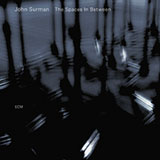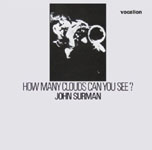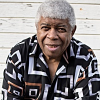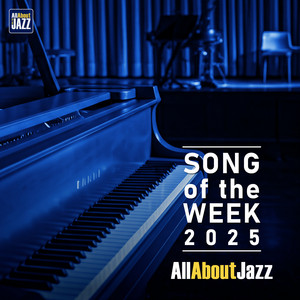Home » Jazz Articles » John Surman
Jazz Articles about John Surman
Tierney Sutton Band: Desire

by Carl L. Hager
Tierney Sutton Band Desire Telarc 2009Singer Tierney Sutton's Desire is the kind of provocative musical work that could change the way a listener hears music. It is an album that is meant to spiritually provoke. It arrests, alarms, it even terrifies.
By the end of “It's Only A Paper Moon," the first track, it is quite plain this isn't the Tin Pan Alley of yesteryear. The much-recorded Harold ...
Continue Reading"Proverbs And Songs" by John Surman, Howard Moody and the Ultime Thule Choir at the 2009 Nordlysfestivalen, Tromso, Norway

by Mark Sabbatini
John Surman, Howard Moody, John Taylor, Ultime Thule Choir Nordlysfestivalen, Ishavskatedralen (Arctic Cathedral)Tromso, Norway January 23-31, 2009
It's been a couple of years since saxophonist John Surman performed his Proverbs And Songs suite. But judging from what he wrung from it after four days' rehearsal with an amateur choir north of the Arctic Circle, his spiritual side seems intact.Surman reunited with Howard Moody and John Taylor, switching their respective ...
Continue ReadingJohn Surman - Howard Moody: Rain on the Window

by AAJ Italy Staff
C'è un che di religioso, in questo lavoro discografico di Surman e Moody. E non si tratta (o quantomeno non solo) della presenza dell'organo. E neppure di uno spiritual ("I'm Troubled in Mind") che è entrato anche nel songbook (ammesso che si possa dire così) della tradizione cattolica italiana. E', piuttosto, la rigorosa austerità, il severo autocontrollo che permea tutta la musica dell'album, a darci questa dimensione religiosa. Quasi che l'abbandono improvvisativo, il guizzo nervoso, lo squarcio libertario di certe ...
Continue ReadingJohn Surman: The Spaces in Between

by Budd Kopman
The sumptuous and moving The Spaces in Between represents eight years of growth--not only for multi-reedman/composer John Surman, but also the string quartet Trans4mation, as it originally appeared on Coruscating (ECM, 1999). Bassist Chris Laurence is the link between the two worlds of jazz and classical music, having worked with Surman for more than thirty years, but who has also played in the classical field, working with many musicians, among them the players that came together as ...
Continue ReadingJohn Surman: The Spaces in Between

by John Kelman
One challenge facing many musicians is the documentation of widespread musical interests. More often than not, artists engage in projects that are heard in performance, perhaps on a radio broadcast, but then never again. Sometimes ongoing projects are documented, but only once, as is the case with British woodwind multi-instrumentalist John Surman's superb Stranger Than Fiction (ECM, 1994)--the only commercial recording featuring his longstanding quartet of pianist John Taylor, bassist Chris Laurence and drummer John Marshall.
Making it good news ...
Continue ReadingJohn Surman: The Spaces in Between

by AAJ Italy Staff
Per questa sua ultima fatica discografica, John Surman sceglie una formazione cameristica: il fido Chris Laurence al contrabbasso, ed un quartetto d'archi. Una configurazione strumentale già sperimentata qualche anno addietro in Coruscating (registrato sempre per l'ECM nel 1999), e che permette al sassofonista inglese di dare spazio alla sua vena meno jazzistica, quella più “classica” ed intimista. Quella, per intenderci, che ha sempre caratterizzato certe sue sperimentazioni in solo con l'ausilio dell'elettronica. In scaletta, troviamo prevalentemente brani già pubblicati e ...
Continue ReadingJohn Surman: How Many Clouds Can You See?

by John Kelman
While woodwind multi-instrumentalist John Surman's eponymous debut was a strange mixture of everything from free improvisation to calypso, his second date, 1970's How Many Clouds Can You See?, is a much more focused affair. Surman clearly references one of his roots, John Coltrane, albeit on an instrument that the legendary saxophonist never played.
Surman plays bass clarinet and soprano saxophone, but the baritone has always been his main axe. Here he uses it to put a personal spin on music ...
Continue Reading



















